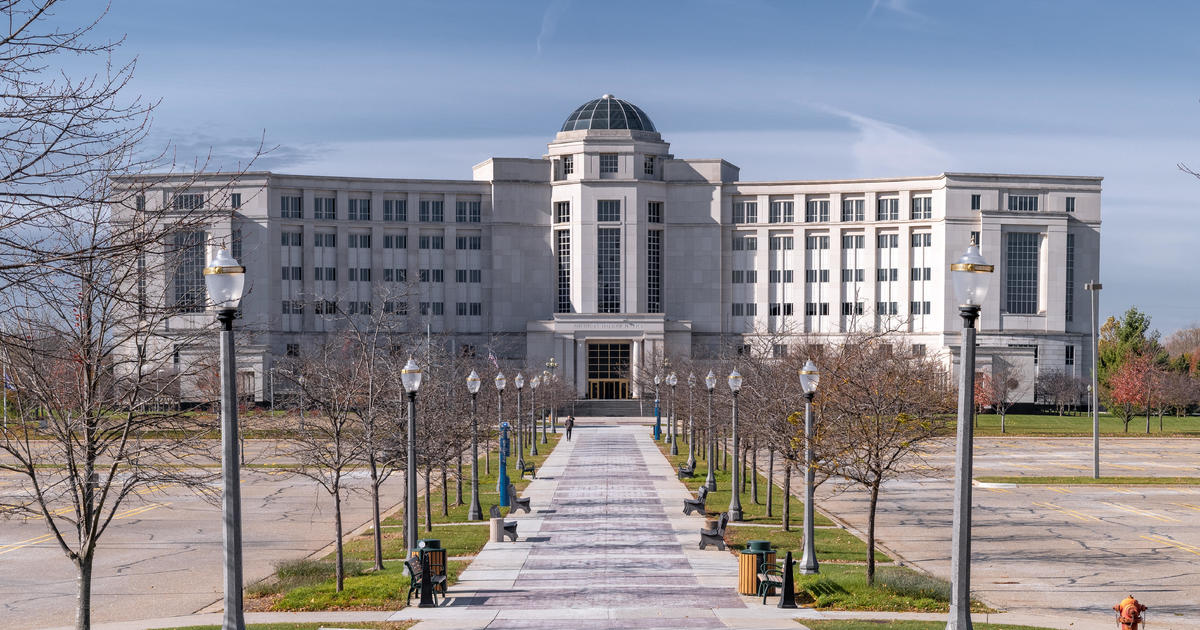Long Labor Contracts Draw Ire Of Mich. Republicans
By David Eggert, Associated Press
LANSING (AP) - Michigan public universities and K-12 districts that consider signing unusually long new contracts before the contentious right-to-work law goes into effect March 28 may have to think twice.
Some Republican lawmakers with the power of the purse are threatening to limit their state aid and call them into the Capitol for an explanation.
The way the law works, unionized workers can no longer be forced to pay union dues or fees after the expiration of any collective bargaining agreement in place on March 28. Until then, employers and unions are free to negotiate contract extensions to delay the impact of right to work.
But an eight-year contract nearing approval at Wayne State University -- and one already approved at a suburban Detroit school district -- are now flash points in the Legislature and courts that could influence similar contract talks elsewhere in the state.
"I don't see how an eight-year contract is financially responsible. I think it's a slap in the face to our parents and students," said Rep. Al Pscholka, a Stevensville Republican who chairs the House budget subcommittee that helps decide funding for all 15 public universities.
He is proposing that no university get a funding increase in the next budget if it signs a contract extension or renewal before March 28 -- unless the contract guarantees at least 10 percent savings in labor costs.
The GOP-controlled House Oversight Committee wants Wayne State officials to show this week and explain their tentative deal with the faculty union. Officials from the Taylor School District declined to appear last week, though the school board sent a letter defending a new four-year contract with a 10 percent pay cut in the first three years.
A separate clause extends for 10 years a requirement that employees pay dues or, if they do not want to be in the union, service fees.
The Mackinac Center for Public Policy, a free-market think tank, sued Thursday on behalf of three Taylor teachers, alleging the union security clause is illegal. The school board says nothing in state law limits the length of a collective bargaining agreement. The head of the state's second-biggest teachers' union calls the lawsuit "absurd."
The developments are being followed by K-12 schools, universities and local governments across Michigan. It is tough to track exactly how many unions or public employers have seriously considered reopening contracts since the right-to-work law was signed nearly three months ago. Yet informal talks are believed to be occurring in a fair number.
A part-time instructors' union at Western Michigan University says a routine three-year collective bargaining agreement is in jeopardy for now because the school is scared about losing state funding, even though it is not an unusually lengthy contract.
Ferris State's board of trustees just rejected a proposal to extend the faculty union's contract. Several unions have approached the University of Michigan and Michigan State University about reopening contracts.
And it is not just universities.
Rep. Bill Rogers, who chairs the House Appropriations subcommittee in charge of the K-12 budget, says school administrators are asking if he will propose giving less money to districts that agree to new labor contracts before March 28.
"My comments to them are please don't give me a reason to," said Rogers, a Brighton Republican who says he can see both sides. "It's disingenuous to circumvent the law. But some school folks are saying we have everyone at the table and we are seeing real savings."
He remains skeptical.
"My question to them is: Have you ever in the history of your business or school had a 10-year contract? That seems a bit strange."
Democrats counter that public employers, including Wayne State, were already negotiating contracts because their old contracts had expired before Republican Gov. Rick Snyder signed the right-to-work law in December.
"The law is not in effect yet. Until it gets into effect, they can negotiate any way they want to negotiate," said Sen. Morris Hood III of Detroit, the top Democrat on the Senate's higher education subcommittee. "To penalize someone for doing that just seems absurd to me. ... We've talked about multi-year budgets. That's what they did. They did a multi-year budget so they can plan the future out."
Hood says Wayne State's tentative contract shows why collective bargaining is beneficial.
"The two parties are happy. So what's wrong with that?"
Some Republicans do not seem as concerned with the new contracts, noting that Wayne State has been without a contract since July. Wage and benefit provisions in the Wayne State deal were not made public by the school Friday.
Sen. Tonya Schuitmaker says she expects Wayne State President Allan Gilmour to make the case that a long-term contract is preferable and more fiscally responsible. She says her main interest is holding down tuition increases and protecting taxpayers who help fund university operations.
"In most cases, the local governing boards are not there to protect the unions," said Schuitmaker, a Lawton Republican who chairs the Senate panel that decides universities' funding. "I would imagine my goals are pretty parallel to most of them. If taxpayers and students are helped out, I guess I don't see any reason for the Legislature at that point to step in."
© Copyright 2013 The Associated Press. All Rights Reserved. This material may not be published, broadcast, rewritten or redistributed.



